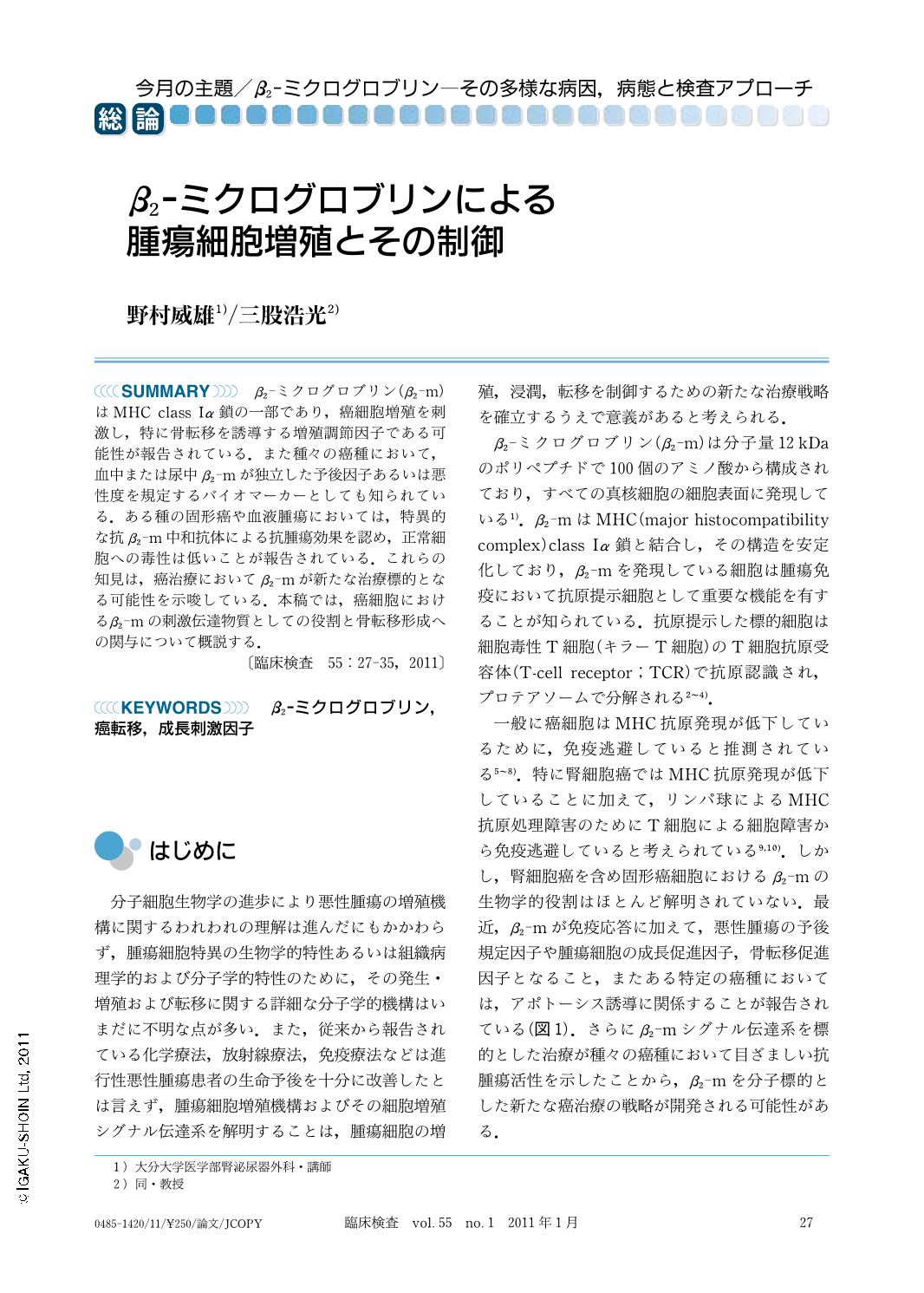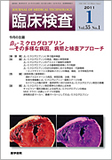Japanese
English
- 有料閲覧
- Abstract 文献概要
- 1ページ目 Look Inside
- 参考文献 Reference
β2-ミクログロブリン(β2-m)はMHC class Iα鎖の一部であり,癌細胞増殖を刺激し,特に骨転移を誘導する増殖調節因子である可能性が報告されている.また種々の癌種において,血中または尿中β2-mが独立した予後因子あるいは悪性度を規定するバイオマーカーとしても知られている.ある種の固形癌や血液腫瘍においては,特異的な抗β2-m中和抗体による抗腫瘍効果を認め,正常細胞への毒性は低いことが報告されている.これらの知見は,癌治療においてβ2-mが新たな治療標的となる可能性を示唆している.本稿では,癌細胞におけるβ2-mの刺激伝達物質としての役割と骨転移形成への関与について概説する.
β2-microglobulin(β2-m), a MHC class Ⅰ subunit, is found to act similarly to a prototypical oncogenic factor capable of stimulating growth and progression of various cancers and plays a key regulatory role in stimulating cancer bone metastasis. Free β2-m in serum or urine has been regarded as an independent biomarker in several cancers. Specific anti-β2-m neutralizing antibodies have remarkable tumoricidal activity for both solid tumors and hematological malignancies and are shown to be selective towards cancer cells, but cause no toxicity in normal cells. These surprising results strongly suggest that β2-m is a promising new therapeutic target for the treatment of human cancers. In this communication, we review the molecular mechanisms of the β2-m signalling pathway involved in regulating the cancer cell growth and focus on the experimental evidence that associates β2-m with cancer bone metastasis.

Copyright © 2011, Igaku-Shoin Ltd. All rights reserved.


